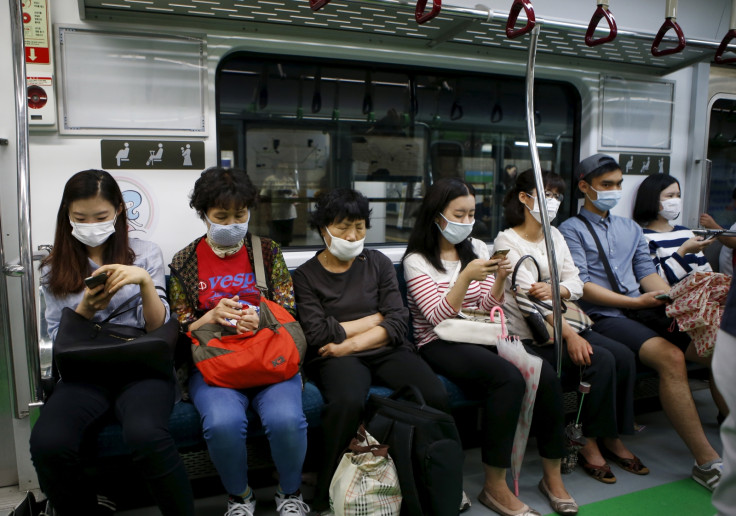MERS outbreak: South Korea may enforce official quarantine as 23 new cases emerge

With six deaths and 23 new cases of MERS taking the total to 87, South Korea is considering enforcing quarantine measures on more than 2,300 people.
So far, the 1,565 people who unknowingly exposed themselves to infection when attending a symposium with an infected doctor have only been asked to self-quarantine themselves.
Seoul Mayor Park Won-soon said the city was considering measures to force these people to stay at home, while officials are trying to trace any more contacts made when the doctor travelled.
Schools in Gyeonggi province where the outbreak started have been closed indefinitely, CNN reports.
Meanwhile, gene sequencing has revealed that the virus has not undergone mutation.
The Korea National Institute of Health said the sample from the second South Korean patient was sent to the US Centers for Disease control and Prevention, a South Korean virus institute and a research institute in the Netherlands for a joint analysis.
No mutation
The sample almost matched up in gene sequencing with the Middle East virus by more than 99%, showing that the South Korean virus is not a mutant, says Xinhua.
The coronavirus, MERS-CoV, could turn into a pandemic if and when the virus begins to mutate.
Any such mutation will set off new cases outside the contact circle or hospital settings. All cases so far have been from the above bracket.
MERS which infects the deeper recesses of the lung is not coughed out except in medical procedures undertaken in hospitals which can see infected aerosols from the lungs of infected people contaminate the area.
MERS, like any other respiratory ailment, spreads when the virus gets into the air by sneezing or coughing, as also contact with contaminated surfaces.
It can be controlled by public health measures.
The current outbreak was set off when a 68-year-old Korean man flew back to Seoul on 4 May after a visit to four Middle Eastern countries.
South Korea became the second country to get infected after Saudi Arabia where more than 1,000 cases were identified since the first case was reported in 2012.
The virus is thought to have originated in bats, and probably jumped to humans through camels.
© Copyright IBTimes 2025. All rights reserved.




















